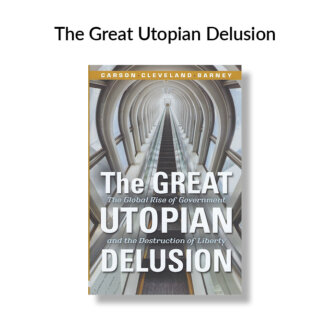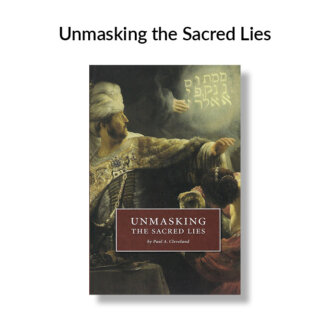Have you recently heard the phrase, “follow the science?” Does that phrase seem odd to you when the science seems to point in every direction? There’s a sad truth about modern scientific research. The problem occurs at the foundational assumption on which the modern pursuit is based. Over the course of a couple hundred years, the pursuit of science was cut free from its recognition that God has established a natural order to all things. Given the very nature of how science is conducted, this has resulted in the widespread abuse of it.
The Scientific Method
The scientific method works in the following way. The scientist collects data, or observations, and then posits a theory aimed at providing a cause and effect relationship that explains the data. Experiments are then designed to test the theory. If the theory holds true in the experiment it is tested again and again. If not, it is falsified and cast out of consideration.
This method is very useful, and we have gained a great deal of knowledge about the world by employing it. However, prevailing theories are never actually proven by using the method because we can never have all the data. The method works by rejecting bad theories when they fail to account for new data arising in the process of discovery or when they cannot be replicated. Nevertheless, those that stand the test of time provide us with useful information and give us greater confidence in the principles they point to.
As the scientific method’s popularity rose and new discoveries were made, it was employed under the assumption that God had created the universe. Based on this recognition, early scientists were in search of the natural order that could be discovered using the method. They were all theists. They believed that God had revealed himself to us in his creation and also in his divine word given in the Bible. The concept of revelation was central in their thinking. They were seeking to discover what God had revealed in his creation.
The Skeptics’ Corruption of the Scientific Method
In time, skeptics began to assert that there is no need to consider God in the pursuit of science and that we would be better served to disregard him and focus only on creation itself in the process. Over the course of the last two hundred or so years, this movement has led to the generally accepted assertion that the only knowledge that we can possess is that which can be verified empirically. That is, proponents of this view assume the only thing we can know is what arises from employing the scientific method.
The problem with this assertion is that the assertion itself cannot be verified empirically. Rather, it is a philosophic statement that can only be embraced by faith. Thus, those who assert that the scientific method is the only method of gaining knowledge face an immediate contradiction in terms and have fallen into irrationality. As a result, science has been hijacked. Modern skeptics are putting the cart before the horse. Having embraced their naturalism, they must direct all the data toward proving what cannot be proved. Namely, that God does not exist. As the Scriptures teach, “the fool says in his heart that there is no God.”
Since we have gone down this road, we have cut ourselves loose from the anchor that provides a way of knowing anything at all. In the older theistic view, we recognize that we can know something of this world because God already knows everything about it. After all, he is the one who created and ordered it in the first place. In this view, you would never wish to cut yourself off from the knowledge of God or of his word, for doing so would leave you in a sea of chaos with no direction whatsoever. But that is precisely what has happened.
Questions the Skeptics Must Answer
When you do this, how can you explain your own existence in this world? Why is there something and not nothing? Does anything have meaning? My pastor recently preached a sermon on creation and pointed out a fundamental truth for those who reject God as the ultimate explanation of the world. He rightly said that they only have two options.
The first option is to argue that nature is all there is or ever will be. This was Carl Sagan’s view. The problem with this view is that it violates the second law of thermodynamics. Namely, all things are in movement from order to disorder. However, if you hold this view you must argue that the complex is arising out of the simple. This view basically argues that things mutate to a more complex order.
The second view is that the world came into being out of some “big bang.” That is something came from nothing. But this is pure contradiction because nothing can come from nothing. As Jonathan Edwards put the matter, “nothing is what sleeping rocks dream of.” Nevertheless, the macro-evolutionary theory has been cast upon us as if it is as certain as the rising of the sun. While evolution at the micro level is certainly taking place, such changes can be understood quite well within a theistic view of creation.
At the end of the day, it is the theistic view of creation that is reasonable and rational. Atheism is simply irrational. But if the scientist has removed God from his research totally, he is acting as a practical atheist even if he is a theist in his personal life. When the university developed in Western Civilization, theology, or the study of God, was considered to be the queen of the sciences. This was rightly so since any study of the created order that aims at actual knowledge must recognize the Creator.
Two Errors When Theology and Science are in Conflict
Good theology and good science would never be in conflict. But in this relationship between theology and science, there are two possible errors.
The first is that you can have good science that is rejected by bad theology. This occurred in the Middle Ages when church leaders opposed the scientific endeavors of men like Copernicus and Galileo.
The other problem occurs when good theology is opposed by bad science. In today’s world this problem is manifested all around us. Since modern researchers have discarded the notion that God has revealed things to us both in his Creation and in his Word, they have cut themselves off from an anchor for gaining genuine knowledge of things. But once you reject God, you reject the possibility of gaining any knowledge whatsoever.
Since science is a never finished exercise, those who are reducing knowledge to the empirical level alone are free to manipulate the data in many different directions depending on their personal preferences. In this worldview you are left to make up whatever you like and to try to impose it on everyone else. Power politics becomes the tool used to pursue your ends and so-called science is easily used in the process. This is what we should rightly call scientism.
Beyond Freedom and Dignity
Consider the social sciences. These fields of study are about human beings who are capable of making choices. However, if we reduce human behavior to mere mechanics, we lose any connection to choice itself. When B. F. Skinner wrote his book, Beyond Freedom and Dignity, his title pointed to his thesis. Namely, he argued that you are not free to choose, and you have no dignity in this world. Rather, he asserted, you are just a meaningless part of nature itself. But that proposition raises the question. How was Skinner able to know this? After all, if his theory is true, doesn’t it have to apply to him as well? But if we apply it to him, then he could not know what he is asserting. The truth is that beyond freedom and dignity are slavery and indignity.
In light of this, what should you do? First, don’t worship the science. The primary article of faith of the modern secular view of science is obviously false, and you will be subject to being manipulated in all sorts of wrong directions. Instead, worship God. He has revealed himself to you in creation. He has also revealed himself to you in the Bible and you should become an avid student of his word. That will help you sort out all sorts of truth from all sorts of falsehoods. Finally, enjoy good scientific inquiry for the enhancement of your understanding of the world in which you live for it should draw you into a deeper relationship with your Creator.









Very good. I’ve been thinking about this a lot lately. It seems that no one ever stops to ask “What does God say?” But only “What does science say?” … and I don’t think God has been historically very happy with being replaced like that!